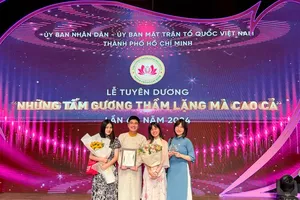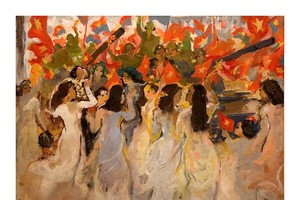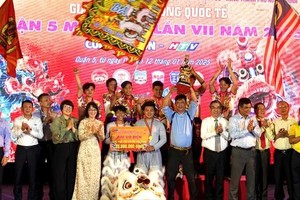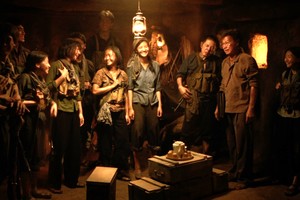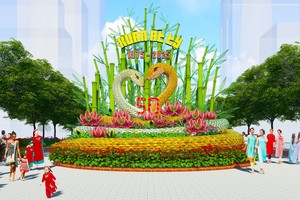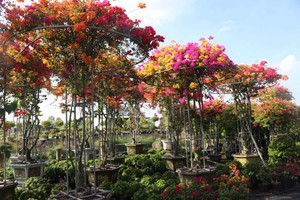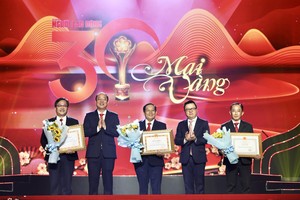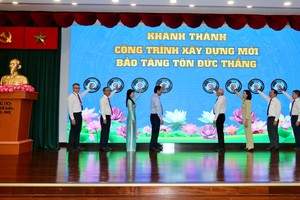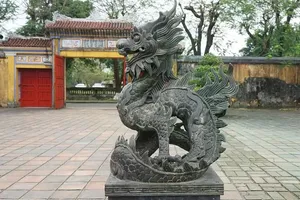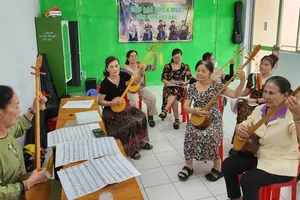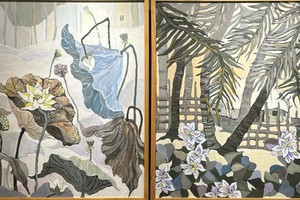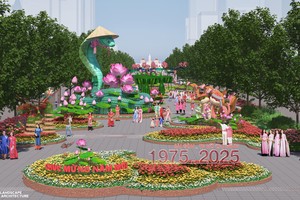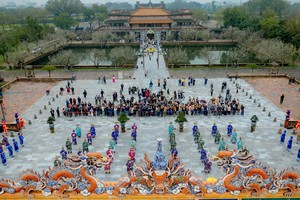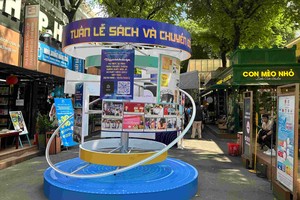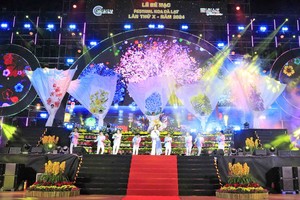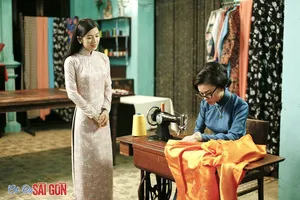A renovation project at the historic Den Hung (Hung Temple) complex in the northeastern province of Phu Tho, has met with harsh criticism for failing to preserve the heritage and natural beauty of the relics and surrounding area.

According to Mr. Nguyen Tien Khoi, director of the complex, the government this year poured nearly VND250 billion (US$12.8 million) into upgrading the ancient temples – a figure around five times more than in past years.
The money was intended to be used for improving the Ha, Trung and Thuong temples located within the complex. Renovation work was also to be carried out on garden areas; steel banisters were to be installed to prevent visitors from falling; lakes were to be dug; and small parks were to be established inside the complex.
However, the project has been criticized for destroying the natural beauty and original architecture of the temple. Forest areas surrounding the temples were cut down, while the Trung temple was torn down completely and rebuilt larger than the original.
In response to the public outcry, Mr. Khoi said: “Many people have questioned why we decided to tear down the small [Trung] temple and rebuild a new, larger one. In fact, we were just following what happened in history. Initially, the temple was built quite large. Unfortunately, in 1953, the French seized the land and burned down the temple. Later, our people donated money to rebuild it. But obviously, our people at that time did not have lots of money to rebuild it to its initial size.”
In regards to the issue of deforestation around the temples, Mr. Khoi said: “In 1960, this area’s forest was cut down and later, space was left for some new trees. However, the new trees were imported from foreign countries. That was a concern for us. Why would we only grow something not belonging to our ancestral land? Why not grow some trees that are indigenous to the area? We thus proposed that the Ministry of Culture, Sports and Tourism allow us to re-plant the forest with local trees instead, and they later approved.
“Please give us and our new forest some time. Today, we do not see a green forest with tall trees as previously, but, probably after a few years when the young trees grow, we can see what we loved to see before. And at that time, we can be proud that our forest is filled with local trees – something ‘preserved’ from our culture.
“Whenever we find anything belonging to the past, even it’s only a piece of terracotta or other [ancient artifact], we must preserve it. I do not dare to [change] historical relics, especially, when I work under the supervision of Vietnam’s Association of Cultural Heritage,” Mr. Khoi added.
The leader from the complex also suggested that his decision to use granite as the main material for the temple’s base and concrete for building a parking lot, would help increase the site’s longevity and did nothing to damage the beauty or history of the area.
Vietnam’s Association of Cultural Heritage, led by Professor Le Tien Tieu, is in charge of deciding whether restorations carried out on historical relics are in line with preserving the sites’ cultural heritage.
In addition to approval from the association, consent from senior departments like the Institute of Central Vestige Renovation – a division of the Ministry of Culture, Sports and Tourism – is also necessary before renovations are conducted at historical relic sites.
The Den Hung ( Hung temple ) complex renovation project had received approval from all necessary leaders and departments.
Another change to the Den Hung complex was that from September, 2009, visitors were no longer allowed free entrance. Now, guests are charged VND10,000 ($0.50) each, which officials say is necessary to pay for the administration and operation of the complex.
At present, about 300 employees are working inside the complex, but only 100 receive their salaries from the Government. The complex thus has to pay 200 workers from its own budget. Other costs like electricity, water, and environmental upkeep are other costs that the temple leaders say need to be covered by charging entrance fees.
The fee was also approved by Phu Tho Province People’s Committee.
A national 10-day Hung King Temple Festival is set to debut this year towards the end of April, and Mr. Khoi has said entrance will be free for visitors during this period.
